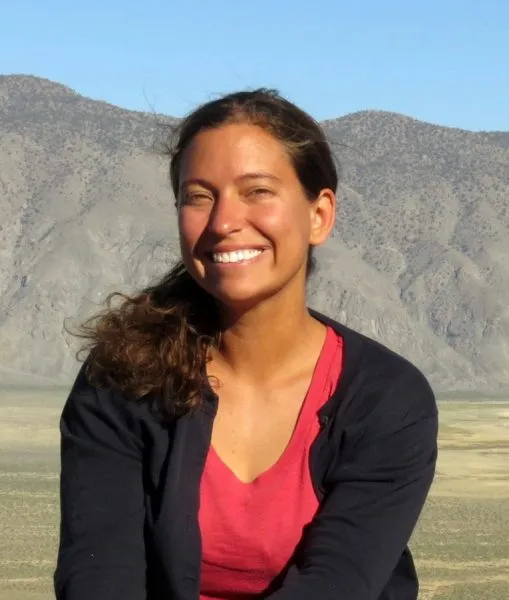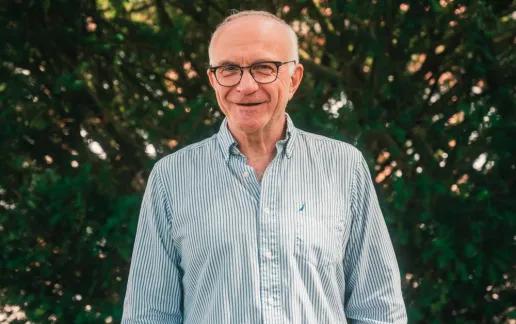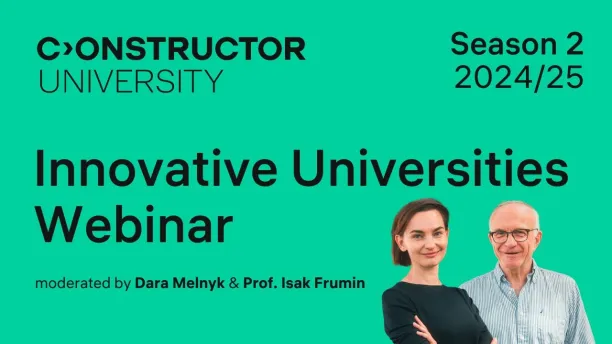Tidelines Institute: Microcollege education in the Alaskan wilderness
This webinar is a part of an Innovative Universities Global Webinar Series.
Tidelines Institute, located in Southeast Alaska, is an educational nonprofit organization dedicated to integrating liberal arts education, scientific inquiry, and experiential learning. Tidelines was formed in 2021 from the merger of two nonprofits, the Arete Project and Inian Islands Institute, both founded in 2013 to provide experiential programs in civic and environmental leadership. Operating from two campuses – the Good River Campus in Gustavus and the Inian Islands Campus – the institute offers a range of programs, including the Glacier Bay Semester, short courses, and community workshops. Students have opportunities to explore the region's diverse ecosystems, such as glacial fjords and temperate rainforests, while partaking in activities like gardening, animal husbandry, and wilderness expeditions. The institute also honors Tlingit culture and values, acknowledging that its campuses are situated on the ancestral homelands of the Huna Káawu.

Laura Marcus, Co-Executive Director of Tidelines Institute
- Laura Marcus is passionate about integrating experiential learning with intellectual pursuits, shaping the institute’s educational programs.
- Before founding the Arete Project in 2013, she worked at Deep Springs College and served as a ranger with the National Park Service.
- She holds a B.A. from Yale, an M.Phil from the University of Cambridge, and is a doctoral candidate at Stanford University.

Zach Brown, Co-Executive Director of Tidelines Institute
- Zach Brown studied chemistry and biology in college and pursued a PhD in Earth System Science at Stanford University.
- His research focused on how changing sea ice impacts marine biological communities, particularly phytoplankton, and included multiple research expeditions to the Arctic and Antarctic.
- After completing his PhD in 2014, Zach undertook a 2,300-mile solo trek from Stanford to Alaska to advocate for the establishment of the Inian Islands instute, which later became part of Tidelines Institute.
Dara Melnyk:
- Tidelines' students' interactions with the world outside the program-designated areas are limited for the duration of study. Isolation has always been a good conduit for focus and depth. (Incidentally, this is why the best college novels happen on isolated campuses). Arguably, the shorter your program, the more important isolation becomes: you can gain on immersion where you are short on time.
- The Institute's pillars are the same as those of Deep Springs: academics (specifically, liberal arts), self-governance, and labor (3-4 hours per day!). The team believes that labor helps with understanding different ways of life and developing responsibility, inter alia. However, if you decide to design your own labor program, keep in mind that if labor does not incorporate learning and growth, it will not work in the same way. Framing matters, too: labor as a chore and labor as a way to explore are two wildly different practices.
- Student governance: Tidelines provides students with a room to fail. Make a decision, give it a whirl, reflect and do better next time if something falls apart. If student governance at your university does not allow students to fail (ideally, up to the possibility of failing miserably to make it real), you might be doing it wrong…
Isak Frumin:
- Romanticism as radical pedagogy: Tidelines Institute, a micro-college nestled in Alaska’s untamed wilderness, dares to infuse higher education with a romantic ethos—interrogating humanity’s existential crises through a curriculum that defies the utilitarian shackles of employer-driven or state-centric models. For me, these practices trace back to the ideas of Rousseau and Tolstoy. Encounters between young people and pristine nature, alongside engagement with “Big Questions,” become an important (albeit relatively brief) phase in their educational trajectory.
- Intensive experiential learning: Eschewing the sterile confines of traditional expertise, Tidelines elevates experiential immersion—cohabitation with nature, communal collaboration, and stewardship—as a provocative redefinition of education’s purpose, challenging the academy to prioritize lived agency over rote credentialism. We increasingly talk about the student experience, but we still focus on experiences confined to the classroom.
- What role can such micro-colleges play in the broader, complex higher education system? Small institutions like these, offering a unique and intensive experience, can serve as an important complement to the traditional teaching and research practices of large universities. Of course, even in large universities, we are increasingly turning to project-based learning and group work. But the concentrated practice of achieving a more holistic experience, complete with adventure and challenges, is perhaps better realized in colleges of this kind.
Resources:
- Tidelines Institute website
- Microcollege Movement: Small is Beautiful (conceptualization of microcolleges on the Thoreau College website in case you were wondering)
- Thoreau College (2023) Microcollege Podcast, E23: Laura Marcus - The Glacier Bay Year at Tidelines Institute, Gustavus, AK (an earlier podcast with Laura Marcus)




